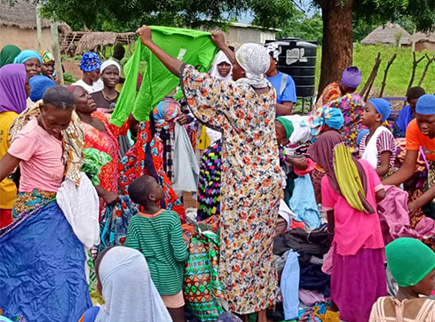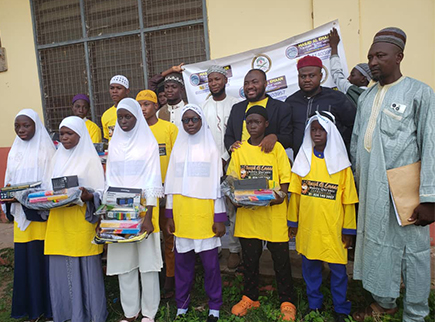The Service to Humanity Initiative, a community-based development programme operating in Northern Ghana, has appealed for support and partnership to expand its interventions in underserved communities.
The Initiative, spearheaded by Alhaji Yussif Amuda Fuseini, Executive Director of Masjid Al Emaan, was established in 2013 after he returned from Australia where he studied Natural Resource Management at James Cook University.
He has since rolled out a series of programmes in education, healthcare, spirituality and welfare aimed at improving the lives of the less privileged.
Alhaji Fuseini told the Ghana News Agency in an interview, in Tamale, that, “Some of the interventions include the Preamble Foundation, which supports basic education for children, and other community projects, which distribute used clothing to rural folks.”
He mentioned others as “Islamic community projects focused on building schools and health facilities, parents’ initiative that constructs projects in memory of departed parents, Mobile Quranic Competitions in rural communities, and the establishment of Tahfiz Centres with stipends for Mallams, who teach at the centres.”
He said over the years, the Initiative had chalked remarkable achievements including the construction of five mosques in Tamale and nearby areas, the construction of a borehole at Nangbagu serving five communities, and the co-founding of a clinic under its health component.

He added that in education, the Initiative had supported the schooling of five children, donated learning materials to more than 500 pupils, and was currently constructing a three-unit classroom block at Mbanayili under the “Our Parents” initiative.
He said: “The Initiative has also organized Mobile Quranic Competitions at Nyankpala, Savelugu, Tali, Bimbilla and Sang to empower rural youth through Islamic knowledge.”
Alhaji Fuseini said over 60 communities including orphanages and vulnerable homes had benefitted from donations of clothing and other essential items.
He said: “Despite these strides, the Initiative is constrained by resources, and we appealed to other benevolent organizations, and individuals for assistance in the areas of transportation, media and publicity, and capacity building.”
He said a dedicated bus would greatly enhance the movement of volunteers, donated goods, and outreach activities to deprived areas while media support would help publicize the Initiative’s work to attract wider donor engagement.
He noted that capacity building opportunities such as training and conferences were crucial for scaling up their interventions.
Alhaji Fuseini said: “We are committed to building dignity, hope, and resilience in our communities. Your support whether financial, logistical, or advisory can make a lasting impact. The joy and happiness of humanity is the guiding principle of the initiative.”
The Service to Humanity Initiative has pledged to continue collaborating with stakeholders to ensure that deprived communities benefit from sustainable social and spiritual interventions.

